By Widi Kusnadi, Editor of Mi’raj Islamic News Agency (MINA)
The official UNHCR report in its website during the commemoration of the International Refugee Day on 20 June, 2016 stated that as much as 65,3 million of people have become refugees, where 51% of them are children. More than half of the number came from three countries with the worst conflicts, namely Syria, Afghanistan and Somalia.
Also Read: Nuclear Technology: Harm and Benefit from the Qur’anic Perspective
Turkey is one of the countries which cared for the largest number of refugees at 2,5 million, followed by Pakistan (1,6 million), Lebanon (1,1 million), Germany (500 thousand), USA (172 thousand) and Sweden as well as Russia with 150 thousand refugees each.
For Syria in particular, December 2015 data showed that almost 1 million of Syrian refugees migrated to Europe. And as much as 10 thousand of them were drowned in the Mediterranean Sea during their quest to reach the blue continent.
Also Read: Gaza Cries Out, the World Stays Silent: A Wounded Humanity
It is important to acknowledged that during WWII, the wave of European refugees have flooded the Middle East, Africa and Russia (it was then called the Soviet Union). The areas that were involved in the war found their population to conduct a mass exodus, spreading to various places.
So how was their condition then? Were the fate of European refugees 70 years ago, who found refuge in Middle Eastern countries similar to the current Middle Eastern refugees in Europe? Let us learn the historical facts below.
Also Read: Indo Defence Expo and Forum; Sharing Responsibility of Humankind and Environment
European Refugees During WWII
In WWII, when the Nazi took over Germany and began to extend its influence and power to other European countries, millions of people, including the Jewish population became refugees and conducted a mass migration away from the Nazi ‘dynasty’. Jewish Virtual Library data showed a painful fact, in which at least 6 million of Jews in the whole Europe became, refugees.
Also Read: Safiya Saeed: From Somali Migrant to First Hijab-Wearing Mayor of Sheffield
A Minneapolis-based non profit media on Sunday (26/6) released an article exploring the condition of those European refugees who fled to Middle Eastern countries such as Syria, Palestine, and Egypt in 1944’s WWII.
Minnesota University’s history archive holds the files of the International Social Service’s history note, records that a US army General Allen Gullion and the Director of UNHCR Fred K Hoeler stated; thousands of European refugees (with the majority of them came from Bulgaria, Croatia, Greece, Turkey and Yugoslavia) who went to Middle Eastern countries) found their heaven on earth upon their arrival in their destinations.
Also Read: Why Food Safety is Essential During Hajj Services?
MERRA (Middle East Relief and Refugee Administration) coordinated with local governments to deliver free accommodation to European refugees, as well as making sure they received health care (with the establishment of emergency hospitals) and education to children refugees.
This organization organized their social acts in a number of cities such as Aleppo, Syria, Nuseirat (Gaza-Palestine), Tolumbat, Khatatba, and Moses Wells (Egypt). MERRA also coordinated with international organizations like the International Migration Service, the International Red Cross, and Save Children Fund.
Also Read: Indonesia Sign Language Mushaf Qur’an; A Sustainable Gift in Celebrating Pancasila Birthday
MERRA worked professionally. Camp staffs recorded refugees and each of them received an identity card, issued by the organization. The card had information such as the full name and the origin of the refugee, sex, camp number, educational history, marital state, date of entry, as well as previous job and special skill.
MERRA’s archive stated that they deliver their service to more than 40,000 refugees, most of them women and children. For refugees who came with their families, they were provided with special camps. Refugees were allowed to exit the camp freely. Adult male refugees were allowed to search for jobs under staff supervision. In Moses Well, they were even had the freedom to enjoy the scenery of the red sea freely, which was located just a few kilometers from the camp.
Also Read: Leila Khaled, The Icon of Palestinian Women’s Resistance
Some lucky refugees who had money could go shopping and in local shops where they were recorded to buy mostly nuts, olives, oil, tea and coffee. Some were also recorded to buying soap, shaving kits, pencils, papers, stamps, etc.
They were motivated to work as cooks, cleaners, shopkeepers, tailors, masons, carpenters or plumbers. MERRA staffs also worked their best to create the opportunity for refugees to utilize their skill in painting and guild so that they would have decent earnings for them and their families.
Also Read: The Twilight of the Zionist Israeli State
Meanwhile, refugees with professional skills could become head masters at schools or foremen. Some of the women became tailors, some did laundry, and some became housemaids,
In the American Journal of Nursing’s article, the International Migration Service were said to also presented certificates for refugees who followed nursing courses. A well-known nurse Margaret M Arnstein was asked to deliver the course. Ornstein recorded that the curriculum of nursing that she taught to the refugees focused more on practical experience rather than theory and terminology.
Also Read: Prof. Abdul Fatah El-Awaisi and the Intellectual Roadmap for the Liberation of Al-Quds
The Condition of Current Refugees in Europe
Nowadays Xenophobia wave is hitting the shores of European countries. One of the peaks of this wave was the latest event of the Great Britain Exiting the European Union, better known as the Brexit (Britain Exit).
Also Read: Dr. Joserizal Jurnalis: Founder of MER-C and Indonesia’s Humanitarian Icon on the Global Stage
Data shows that the number of UK-bound migrants in 2015 was 333 thousand. They not only came from the African and Middle Eastern countries, but some also came from developing countries such as Poland and Lithuania. Right now there are about 3 million EU population working in the UK. The existence of the refugees had an effect on the social problems among UK citizens.
They feel that the migrants will even decrease their already low chance of jobs, which would lead to burdening the government due to the rising nominal of social security. Moreover, migrants are seen as the nemesis of UK’s local culture, and are to blame for the increasing number of crime.
Imaamul Muslimin Yakhsyallah Mansur as the leader of all the Muslim ummah has called the Islamic countries especially those in the Middle East, as well as European countries and the US to work together in addressing the current migrant problem.
“In giving help, we should not differentiate among race, tribe, religion, sect as well as other differences. They are humans, just like us. So it should be a natural thing for us to help them,” he stated.
Pope Fransiscus on 25 March 2016 criticized Europe for turning their backs and killing their conscience to the suffering of the refugees who were fighting for their lives. He delivered his sharp critic when he was leading the Good Friday mass in the Vatican.
“O Cross of the Christ, today we see you in the Mediterranean and Aegean Sea that have turned into graveyards that are never satisfied, which reflects our passiveness and the death of our conscience,” said the Pope as quoted by CNN.
The pope also called the international community to open their doors for refugees and to fight xenophobia.
Meanwhile, the Daily Mail reported that the Interior Ministry of Greece Panagiotis Kouroublis said that the Middle East refugee camps in Idomeni was worse then the concentration camp in Nazi, Dachau. Idomeni camp is located in the border between Greece and Macedonia. The condition of the camp, said Kouroublis, is very dirty, uninhabitable and sad.
Heavy rainfall has made the camp to look no different than a swamp. Thousands of people sleep in small tents on sewerages and muddy floor. They have to wait in line for hours to receive food and aids.
Dozens of children suffer from the flu and fever and they do not receive care given they would have to wait for a social organization to arrive.
In the meeting, the EU and Turkey reached a historical agreement in suppressing migrants from entering Europe. The current refugee crisis is recorded as the biggest crisis in Europe since WWII.
According to the agreement, all migrants who enter Greece from Turkey starting from Saturday, 19 March 2016, would be sent back to Turkey. But European leaders said that the hard bit now would be to wait for the implementation of the agreement.
Meanwhile, Germany’s welcoming attitude towards the migrants, especially those coming from Syria is highly connected to the emergency situation which occurred in Hungary, as well as the solidarity given by the people of Germany.
Berthold Damshauser, Bonn based social problem analyst, when asked by the BBC about Germany’s attitude towards the migrants, said “there is an emergency situation in Hungary in which refugees were not well-treated, leading to the government of Germany to open the way for them.”
This attitude might be caused by the experience of the people of Germany in the past.
Germany lost in WWII and millions of Germans became refugees and had to leave their homes in East Germany.
UN High Commission for Refugee, Filippo Grandi said that European leaders should increase their policy coordination. Moreover, they should also need to fight xenophobia and negative stereotype about refugees.
“They who are doing the opposite, who scramble public opinion by turning against the refugees, must be responsible for creating this xenophobic climate,” added Grandi. He believed that this anti-immigrant atmosphere in Europe is concerning.
Grandi said that the majority of people who took refuge do it out of war and pressure. They also do it due the increasing threat. When they try to save themselves, they risk of drowning in the sea or to be blocked upon reaching borders.
Migrants are no Threat
In theory, the existence of migrants serves as one main pillar of an area or country in enhancing their economy. They could give a cultural variety and they would be more motivated to work professionally knowing that they are under supervision.
Migrants who came to Europe essentially are no threat to the indigenous people of the blue continent. In fact, their arrival could enhance economic growth, especially in small and medium enterprises, and they could also work in areas in need of human resource, particularly those of middle and professional workers.
For example, since the arrival of Muslim migrants in the UK, the country has declared itself as one of the sharia business hub in Europe. This country keeps working towards becoming a new mecca for sharia monetary system.
Prior to Ramadan, London is packed with the rich from the Middle East who would spend their money shopping for branded items. It is no surprise then to find London becomes a city where rich Muslims were born.
Citing standard.co.uk report, UK Muslim board released an analysis of Muslim’s contribution to UK’s economy. They predicted that as we speak, London might have more than 10,000 Muslim billioners, with liquid assets worth more than 3,6 billion Pound sterling.
Furthermore, there are 13.400 businesses belonging to Muslims in London, creating more than 70,000 jobs and representing more than 33% small and medium enterprises in London.
The Sunday Times even records that there are more than 15 Muslims who made to the list of the richest people. They successfully run retails, hotels and monetary businesses. There is Mohammed Bin Issa Al Jaber (hotel owner), Mohammed Al Fayed (former owner of Fulham FC football club), Fakhrussin Suterwalla (food businessman), Camilla Al Fayed (fashion businesswoman), and Rasha Said (Syrian-born monetary expert), just to name a few.
Not only that, the existence of migrants could also lift the achievement and prestige of they country where they live. Look at the international athletes who fought their best blossoming the countries where they reside. We have the legendary boxer Muhammad Ali, basketball player Kareem Abdul Jabbar who has made the USA proud. We have Zinedine ZIdane and Kareem Benzema, football players who are better known as French players, and there is still a long list of internationally recognized athletes who began their journeys as migrants, and later made their countries that welcomed them, to be proud. (R03/NMT)
Mi’raj Islamic News Agency (MINA)







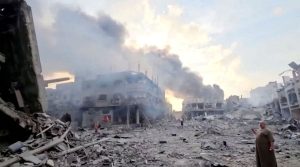
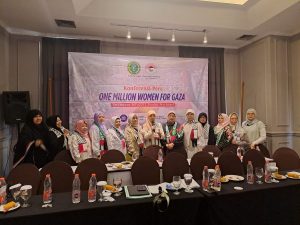

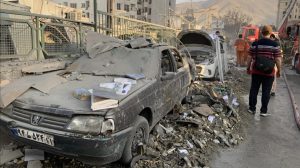

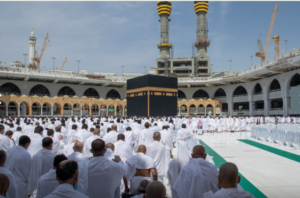
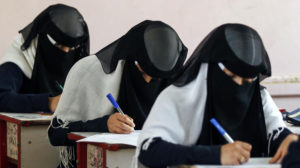
![MUI Chairman for Foreign Relations and International Cooperation, Sudarnoto Abdul Hakim (center) at the One Million Women for Gaza Press Conference entitled "Women Boycott Pro-Israel Products" held at the Swiss-Belinn Cawang Hotel, East Jakarta, Thursday (3/7/2025). [Photo: Arina/MINA]](https://en.minanews.net/wp-content/uploads/2025/07/20250703_144042-scaled-1-300x225.jpg)


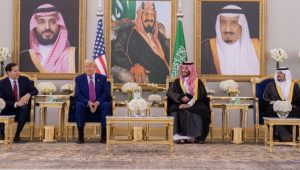
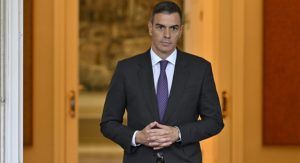
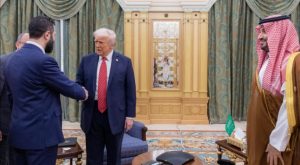




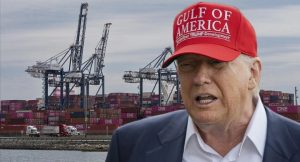


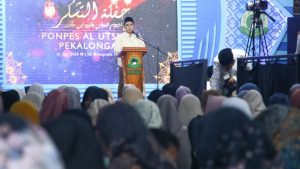
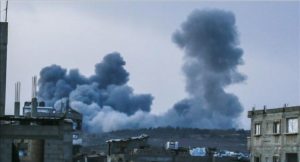

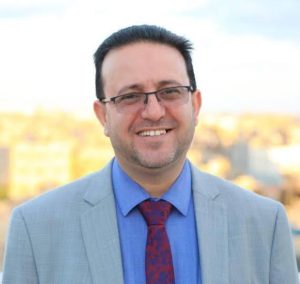



 Mina Indonesia
Mina Indonesia Mina Arabic
Mina Arabic